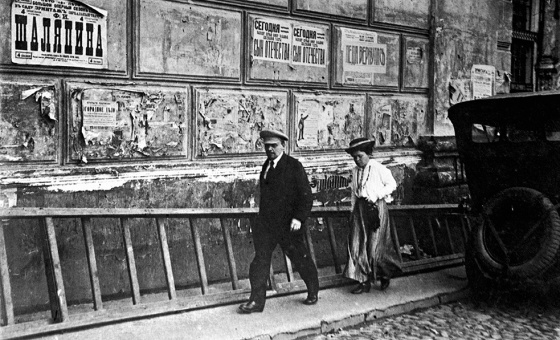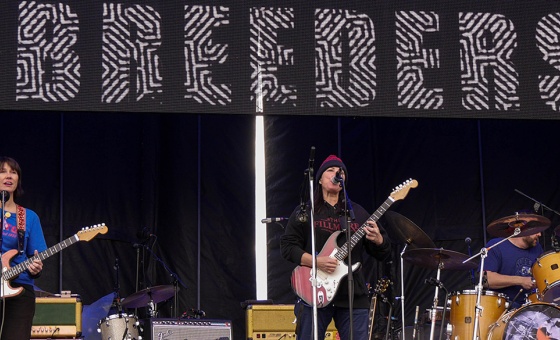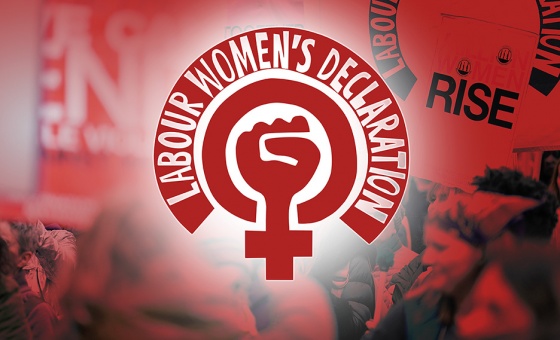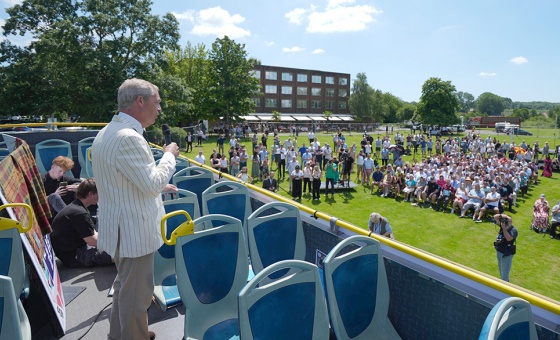This is the last article you can read this month
You can read more article this month
You can read more articles this month
Sorry your limit is up for this month
Reset on:
Please help support the Morning Star by subscribing here
Salvador Allende died at the age of 65. By his own admission he had lived a relatively long and fruitful life, dedicated to the struggle for democracy and defined by elections often contested in difficult circumstances.
Allende’s persistence in fighting elections was testament to his belief that in Chile, because of its unique history and social context, this was the most viable and effective way of placing the country on the path to socialism.
Allende’s conviction was not a wilful construct.
He was born during the dying stages of the system after the revolutionary civil war of 1891 and he became an adult as the democratic system that lasted until September 11 was born.
As the scion of a family with a distinguished history, Allende had lived a privileged childhood amid members of the Chilean political elite.
The student Allende had mixed with many future political leaders and was witness to the growth and development of the popular organisations of the left.
When a young adult he also witnessed the failure of the military-inspired “socialist republic” of 1932, contrasted in 1938 by the successful election of a Popular Front government that began a process of radical reforms.
All helped to shape his perception that in Chile the revolution did not have to follow the “traditional” violent path.
Allende decided to act “in accordance with the reality of my country, in conformity with its idiosyncrasies and needs,” as he later said. His concrete, practical and intimate knowledge of the political system convinced him that in Chile it was possible to initiate deep structural change from within.
Learning from the experience of the Popular Front, Allende thought that this approach required the broadest possible coalition of people and organisations around proposals that aimed at achieving democracy, social justice and economic and human development.
The Communist Party came to a similar conclusion. Fortunately for both, much of the Socialist Party —while sceptical of a multi-class alliance — was amenable to a narrow alliance of working-class organisations.
However, for much of the 1940s and 1950s, the Socialist Party was itself divided. This was reflected in the division of the trade union movement as well.
Allende played an important role in rebuilding socialist unity and, once this was achieved, in sustaining the alliance with the Communist Party that took him to the presidency after 18 years of struggle.
Allende was one of the left’s best known and most respected leaders among a generation of political stars forged during the Popular Front.
Together they helped to shape the Chilean left — one of the most vibrant, best organised and most effective in the world.
He was without doubt the figure that stood tallest among them, thanks to his knowledge of the system, work rate, combativeness and his deep compassion for the people.
He had the capacity to educate and to gather bright minds around him, along with a public persona shaped over decades of public life.
In addition Allende had an ability to think tactically and strategically, grasp the essence of a situation rapidly and look further forward than those around him.
This showed the influence of a particular set of political ideas and guiding principles.
While it is true that Allende did not develop a universal political theory it would be a mistake not to recognise a particular “Allendista” set of principles. He had what Regis Debray called “a firm conceptual foundation.”
He read widely, especially about politics, and although he may not have read many of the more recent Marxist theoreticians, he had no doubt learned much about them from his conversations with those who had.
His intellectual legacy is in this sense a mixture of concepts drawn from a broad spectrum of sources and life experiences. In this he was a truly heterodox thinker.
It was Allende’s political vision, along with his fearlessness, his charisma, his international contacts, his national stature and his total dedication to the cause that made him the irreplaceable leader of the Chilean left.
Allende spent his life in the search for the unity of the left, without compromising its diversity.
He did not seek the construction of a narrow vanguard but the development of a mass movement which would seek points of agreement with the political centre while maintaining a firm commitment to anti-imperialism and to socialism.
His Popular Unity government was the culmination of this 50-year effort to build the broadest possible coalition. In election campaign after election campaign Allende, the CUT trade union federation and the parties of the left sought to spread their analysis of Chile’s problems and their solutions to the people, evolving and adapting their programme as they went.
Gradually, and against the odds, they convinced a majority of Chileans.
The growth of the left’s influence dragged the entire political spectrum leftwards to such an extent that the Christian Democrat PDC, its main competition, aped its programme and its language.
Popular Unity (UP) was the culmination of Allende’s efforts to forge a broad coalition. But just as UP was the triumph of his methods and his message, as president of the country Allende also bears some responsibility for its ultimate failure.
There are a variety of explanations usually given for this defeat.
Those critical from the left have tended to emphasise his underestimation of the threat from the US and the inevitability of an unarmed revolution’s failure.
Other radical critiques focus on his unwillingness to arm the people or mobilise them in defence of the process and upon the government’s failure to support incipient political organisations that began to emerge from outside the traditional institutions.
The communist critique centred on the failure to deal with the ultra-left within and outside the UP coalition and on Allende’s failure to use coercion against the more extreme right-wing opposition which together, in their view, resulted in the isolation of the working class.
Liberal critiques have in turn emphasised that economic chaos and political polarisation, along with the structural restrictions of the political system, created an unworkable situation and that Allende’s failure to retreat from his revolutionary goals therefore made the coup inevitable.
Perhaps each of these rather general explanations contains some truth at particular points during the UP era.
None, however, explains why Allende acted as he did.
To find the answer we must look into the mind of the man who led the process and who therefore had the greatest potential to change the course of events.
This is an extract from the newly published Salvador Allende: Revolutionary Democrat by Victor Figueroa Clark (Pluto Press, £12.99).









